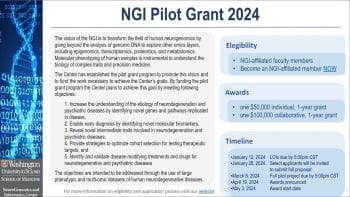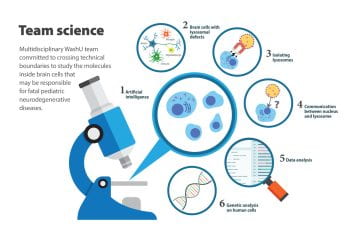The 2024 Alzheimer’s Association’s International Conference (AAIC) annual conference (https://aaic.alz.org/) will take place July 28 – August 1, 2024 in Philadelphia, PA. The NGI Center is represented by 11 of our own researchers who are showcasing their recent work on Alzheimer’s disease either through oral presentations, guided poster tours, and posters. The contributions to this […]
The Neurogenomics and Informatics Center representation at the AAIC24



